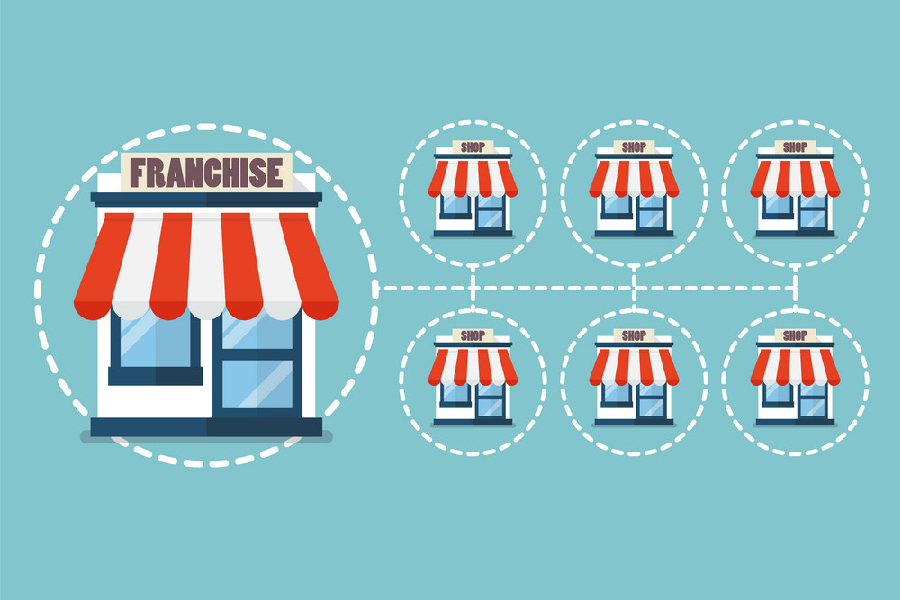Franchise
When a business wants to increase its market share or geographical presence at a low cost, it may sell its product and brand name through franchising. A franchise is a joint venture between franchisor (- the original business) and franchisee (- the entrepreneur seeking to venture into the business). It allows the latter the access to an established company’s brand name.

Image Credit : https://bit.ly/34A9Ot8
Entrepreneurs, these days, are exploring this option as it gives them access to an established company’s brand name, especially when entering a highly competitive industry such as fast food. According to Investopedia, “a franchise is a type of license that grants a franchisee access to a franchisor’s proprietary business knowledge, processes and trademarks, thus allowing the franchisee to sell a product or service under the franchisor’s business name”. In return, the franchisee has to pay the franchisor an initial start-up fee and annual licensing fees.
While this business model has become ubiquitous these days, it dates back to the mid-19th century United States. Two companies—the McCormick Harvesting Machine Company and the I.M. Singer Company— came up with this novel business proposition allowed McCormick and Singer to sell their reapers and sewing machines to an expanding domestic market. The food and hospitality adopted this idea in the 1920s when A&W Root Beer launched franchise operations. Numerous recognizable brands such as McDonald’s, Taco Bell, KFC and Dunkin’ Donuts are some examples of this.
Franchising v/s Licensing
Franchising, however, is not the same as licensing. While the former involves a relationship that goes beyond the grant of a license and embodies a relationship of control, where the underlying business is required to operate in accordance with designated systems and procedures. In contrast, the latter is a legal relationship that is limited in scope and relates only to the use of a trademark or technology. An example of a license will be Microsoft granting a license to individual users allowing them to use the Windows operating system.
In the licensing business model, the licensing company may exercise control over how its IP is used but does not control the business operations of the licensee. In contrast, under the franchising model, the franchiser maintains a considerable degree of control over the operations and processes used by the franchisee
Franchises: Double edged swords?
Franchises have a string of pros and cons. The most important advantage is that they offer a ready-made business formula to follow – market-tested products and services, and in many cases established brand recognition. Thus, entrepreneurs don’t have to bother themselves with considerations like what products to sell, how to layout your store, or even how to design your employee uniforms have already been made.
On the other hand, success is never guaranteed in franchises – what might work out for McDonald in USA (e.g. beef burger) might not work out in India, for example. At the same time, franchising may entail heavy start-up costs as well as ongoing royalty costs. The entrepreneur will have to shell out a percentage of their sales or revenue to the brand. Another drawback is that franchisees don’t have any creativity with their business.













Leave a comment